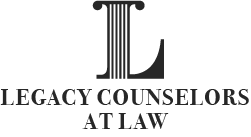Protecting Your Assets
Asset Protection Tactics: Safeguard Your Finances
Asset protection is a crucial strategy for safeguarding your wealth against potential threats and uncertainties. I’ve learned that no matter how much you’ve earned, what truly matters is how much you keep. That’s why understanding the ins and outs of asset protection is essential for anyone looking to secure their financial future.
In this article, I’ll dive into the best practices for asset protection, from establishing the right legal structures to leveraging insurance for risk management. Whether you’re a seasoned investor or just starting to build your portfolio, you’ll find valuable insights to keep your assets safe.
I’ll also explore common pitfalls and misconceptions, ensuring you’re equipped with the knowledge to make informed decisions. So, let’s get started on fortifying your financial defenses and ensuring your hard-earned wealth stands the test of time.


Protecting Your Assets
When it comes to asset protection, it’s crucial that I take proactive steps to shield my wealth from future risks. This means understanding how to navigate the intricacies of legal structures designed for protection. At Legacy Counselors at Law P.C., I’ve learned that the foundation of a robust asset protection strategy lies in the timely establishment of trusts and business entities.
Trusts, for example, are a cornerstone of asset protection. They allow me to place my assets under the management of a trustee, creating a legal separation that can offer a layer of security against creditors. Selecting the right type of trust is central. Whether it’s a revocable living trust or a more complex irrevocable trust, each serves a specific purpose and offers different levels of protection.
Business entities such as LLCs and corporations play a pivotal role as well. By properly structuring my business, I can protect my personal assets from any potential liabilities arising from business activities. It’s not just a shield; it’s a strategic move to ensure that my personal wealth remains unaffected by the risks my business may encounter.
Here’s a quick look at some other critical components of a sound asset protection plan:
Regular asset reviews to keep up with changing laws and personal circumstances.
Comprehensive insurance policies to cover potential liabilities.
Maintaining accurate and up-to-date records to ensure transparency and legal compliance.
At each step, consulting with an experienced attorney from Legacy Counselors at Law P.C. helps me navigate the complexities of asset protection. Their expertise ensures that the strategies I implement are tailored to my unique situation, thus maximizing the protection of my hard-earned wealth.
Why Asset Protection Matters
When it comes to preserving your wealth, asset protection should never be an afterthought. It’s about shielding your assets from unforeseen threats that can arise at any point in life. Whether it’s a lawsuit, divorce, or creditors, the stakes are high, and the impact on my financial stability can be severe. As someone with years of experience in the art of safeguarding wealth, I’ve seen firsthand how unforeseen legal issues can upend a person’s financial future.
Think of asset protection as a form of insurance; it’s there to provide a safety net against potential financial blows. By creating legal barriers, I can deter creditors and litigants from seizing assets that I’ve worked hard to accumulate. Moreover, this isn’t just for the mega-rich; even those with modest estates can find their savings at risk without proper planning. I can’t stress enough that everyone should consider strategies to protect their assets— it’s not about hiding wealth, it’s about prudent management.

The real beauty of asset protection lies in its proactive nature. By setting up the right structures well in advance, I’m not just reacting to threats, but I’m planning for a secure financial future. Regularly reviewing and updating these protections in light of changing laws and personal circumstances is a pivotal part of maintaining a robust defensive shield around my assets.
Furthermore, implementing asset protection can provide peace of mind. Knowing my wealth is structured to withstand legal storms lets me focus on what’s truly important: growing my assets and planning for my family’s future without looming worries about what could happen to my hard-earned money.
To convey how crucial asset protection is, I’ve helped countless clients through Legacy Counselors at Law P.C. to establish comprehensive strategies that align with their individual needs. It’s clear that asset protection isn’t a luxury, it’s a necessity in the unpredictable world we live in.

Common Techniques
Ensuring effective asset protection involves a variety of strategies to secure one’s finances. One key method I often recommend is the use of trusts. Trusts can safeguard assets from creditors and reduce estate taxes. Assets placed in an irrevocable trust, for example, are generally beyond the reach of creditors as they are no longer considered personal property.
Another technique is asset titling, which involves owning property in certain ways that offer protection. This can include tenancy by the entirety for married couples, which often shields assets from claims against one spouse. Additionally, I advise clients to consider forming business entities, such as limited liability companies (LLCs) or family limited partnerships (FLPs), which separate personal assets from business liabilities.
Insurance plays a vital role in asset protection as well. Liability insurance can cover claims that exceed the standard policy limits, while an umbrella policy provides an additional layer of security. My focus is on ensuring that my clients are aware of these options and understand how they contribute to a strong asset protection strategy.
Lastly, I emphasize the importance of exempt assets—assets that are typically protected from creditors under state law. These can include Homestead property, retirement plans, and life insurance. It’s critical to understand the specific exemptions available and structure assets accordingly to maximize protection.
I make sure my clientele knows that asset protection isn’t a fix-it-and-forget-it deal. Regular reviews are necessary. Laws and personal circumstances change, and an outdated plan might not provide the defense needed in the face of today’s challenges. With my guidance, clients can adapt their asset protection strategies to suit changing laws and life events, ensuring their wealth is defended against unexpected threats.
Trusts for Asset Protection
Protecting your wealth is more than a one-time setup; it’s a continuous process that demands vigilance and adaptability. Trusts, titling, business entities, and insurance aren’t just tools; they’re shields that guard your financial future. Remember, it’s not just about having these strategies in place. It’s about understanding their nuances and ensuring they’re aligned with your evolving financial landscape. By staying proactive and informed, you’re not just protecting assets—you’re securing peace of mind for years to come. So keep a keen eye on your protective measures and adjust them as your life and the laws change. That’s the key to robust asset protection.

Frequently Asked Questions
Asset protection involves strategies and legal tools to safeguard assets from potential creditors, lawsuits, or judgments.
Trusts can provide a legal barrier between creditors and your assets, as well as offer tax benefits and estate planning advantages.
Proper asset titling can determine ownership rights and limits a creditor’s access to certain assets, contributing to your overall protection strategy.
Forming business entities such as LLCs or corporations can separate personal assets from business debts or liabilities, offering an additional layer of security.
Insurance policies like homeowners, auto, and umbrella liability can offer a first line of defense against claims, protecting your assets from potential legal threats.
Exempt assets are those that are largely protected from creditors under federal or state law, such as retirement accounts and homestead property.
Regular updates and reviews of your asset protection plan can adapt to changes in laws, personal circumstances, and economic conditions to maintain optimal defense of your assets.
